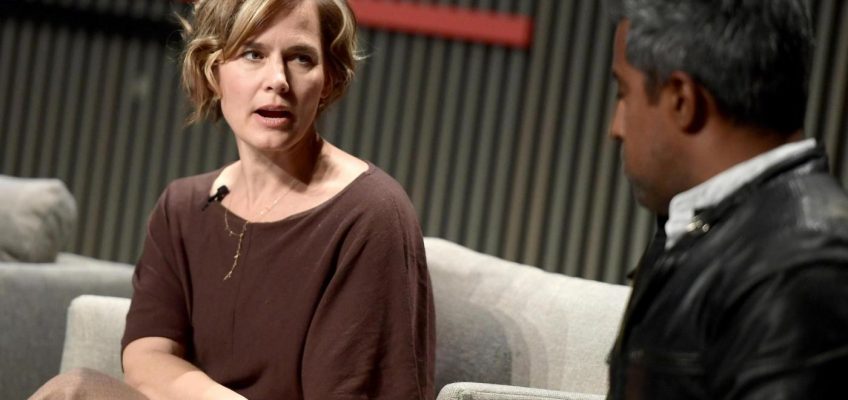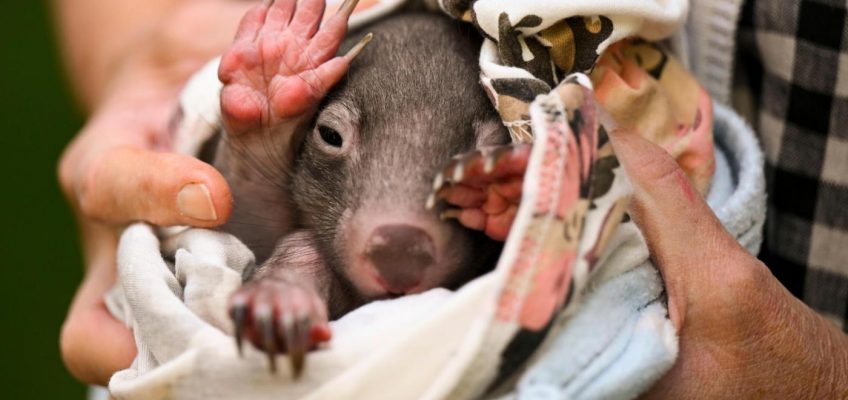By Sarah Kwon, KFF Health News
Jennifer Pahlka is perhaps best known as the founder of Code for America, a widely respected nonprofit that helped formalize the principles of civic tech, a movement leveraging design and technology expertise to improve public access to government services and data. Notably, the organization reimagined the online application for California’s food assistance program, which once had one of the country’s lowest participation rates, transforming it from a 45-minute endeavor requiring a computer to a mobile-friendly process that can be completed in under 10 minutes.
Related Articles
Voice of America ending contracts with Associated Press, Reuters and Agence France Presse
Judge won’t block destruction of old USAID classified documents as the building is cleaned out
Whipsawed by Trump’s tariffs, the US public is getting a lot more nervous about the economy
The Trump administration pushes again to restrict birthright citizenship. What does that mean?
Allies wrap up a G7 meeting overshadowed by Trump’s tariffs and Canada taunts
Pahlka’s 2023 book, “Recoding America,” outlines her views on why the government so often fails to achieve its policy goals in the digital age. In it, she argues that “archaeological” layers of policies, regulations, and processes center the bureaucracy, not the public.
As a deputy chief technology officer under President Barack Obama, Pahlka helped launch the United States Digital Service, a unit within the White House that paired top technology talent with federal agencies to make government services more efficient and user-friendly. It was the predecessor to Elon Musk’s “Department of Government Efficiency,” or DOGE. On Feb. 25, 21 employees resigned from the renamed service, saying they would not “carry out or legitimize DOGE’s actions.”
Pahlka believes bolstering the government’s tech chops and relying less on contractors could save taxpayer dollars. However, as the administration looks to slash spending, she worries that DOGE’s “very indiscriminate” approach to date could wind up harming people who rely on public benefits such as Medicaid.
KFF Health News spoke to Pahlka, now a senior fellow at the nonpartisan Niskanen Center, about what she sees as “irresponsible transformation” and how best to fast-track government reform. This interview, conducted in mid-February, has been edited for length and clarity.
Q: You’ve made a career of bringing Silicon Valley talent into the public sector to improve the delivery of government services. What have you learned from mixing tech with government?
A: It’s really easy to look from the outside of government and say, “That’s crazy it works that way. I’m going to go in and fix it.” And when you get in, it’s that way for a reason, and you gain so much more empathy and sympathy for people in public service. You realize that people who you thought were obstructionists actually are just trying to do their jobs.
Civil servants deserve respect. We’re just not transforming government fast enough.
Q: What are the key changes you think would speed things up?
A: One, you have to be able to hire the right people and fire the wrong ones.
You also have to be able to reduce procedural bloat. When the unemployment insurance crisis hit, every state’s labor commissioner got called in front of the legislature and yelled at for the backlog. Rob Asaro-Angelo in New Jersey brought boxes and boxes of paper — 7,119 pages of active regs. And when they kept yelling, he kept pointing them to them and saying, “You can’t be scalable with 7,119 pages of regulations.”
The third pillar is investment in digital and data infrastructure.
And the fourth is closing the loop between policy and implementation. In California, you get thousands of bills introduced every year in the legislature. We don’t need that many. We need legislators to follow up on bills that have already been passed, see if they’re working, tweak them if they’re not. They need to go into agencies and say, “If this is hard for you to do, what mandates and constraints can we remove so you can make this a priority?”
Q: Civic technologists pushed through layers of bureaucracy in California to boost participation in the Supplemental Nutrition Assistance Program. How did that process unfold?
A: When we started working on California’s SNAP application, it was 212 questions. It started from, “What are all the policies that we need to comply with?” Instead of, “How would this be easy for someone to use?”
I think it can always be helpful to have fresh eyes on something. If those eyes have experience in consumer technology, they’re going to see through that lens of, “How do we deliver something that is easy for people to use?”
Q: House Republicans are considering deep financial cuts to safety net programs such as SNAP and Medicaid, and restricting eligibility. In recent years, organizations including Code for America have received hundreds of millions in private funding to modernize social safety net programs and make them more accessible. How optimistic do you feel that these efforts will progress over the next four years?
A: Let me say what I hope for: I hope that the states now get that when we don’t transform fast enough in a responsible way, you are inviting irresponsible transformation. I hope this gives governors and mayors all over the country a kick in the butt to say, “Whatever we have done so far, it has been insufficient. We really need to work on the capacity of our state to deliver in a modern era.”
Q: What do you mean by irresponsible transformation?
A: Maybe there is good stuff that DOGE is doing now that I don’t know about or good stuff that they will do in the future. I don’t have a crystal ball. But I do see that there is a huge difference between illegally stopping payments without Congress’ permission and making an IT system work better.
Q: To that point, DOGE’s purview seems to have shifted from modernizing government systems to, ostensibly, rooting out fraud, waste, and abuse. What do you make of that change?
A: I think the thesis that better technology could reduce waste, fraud, and abuse is sound, but you want to see both better use of technology to ensure that taxpayer dollars aren’t wasted, and that people who need their benefits are going to get them. You need a North Star that includes both of those things.
Q: And you’re not seeing that in DOGE?
A: They have not expressed great care for what damage can happen to people who rely on benefits. I’m just seeing large, very indiscriminate cuts.
They have signaled that government needs its own internal tech capacity and that it’s shocking how reliant on contractors our government is. I would agree with that.
We have a very dysfunctional government technology contracting ecosystem. There’s this set of big firms that we’ve outsourced our technology to that get to charge taxpayers a shocking amount of money to implement changes.
Q: Thousands of federal workers are now being pushed out. In light of your view that we outsource too much, what are your feelings on that?
A: We’ve overrelied on the idea that we should bring people in from the outside and underinvested in helping career civil servants to do transformation work themselves.
When I wrote my book, the biggest hero was Yadira Sánchez, who I think now has been at the Centers for Medicare & Medicaid Services for 25 years. She’s a leader who really pushes for the kinds of decisions that are going to make a service for doctors that’s going to be usable. She gets pushback and comes back and says, “If you make that decision, we are going to alienate doctors. They’re going to stop taking Medicare patients. And we’ve got to do it this different way.”
We need more of her, and we need to empower lots of people like that.
This article was produced by KFF Health News , which publishes California Healthline , an editorially independent service of the California Health Care Foundation .
©2025 KFF Health News. Distributed by Tribune Content Agency, LLC.




